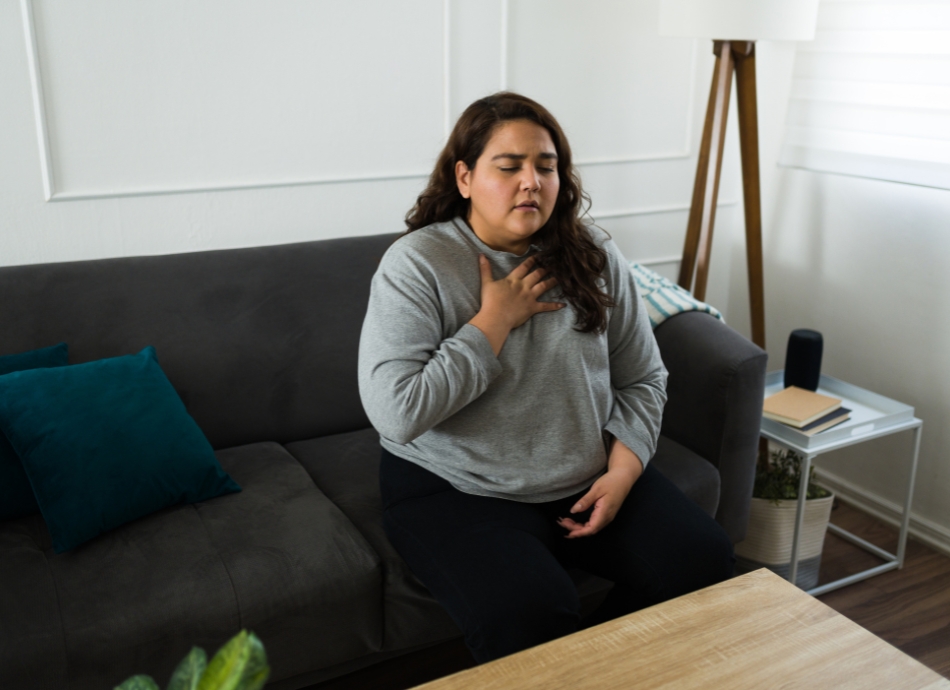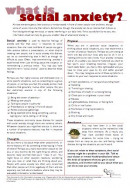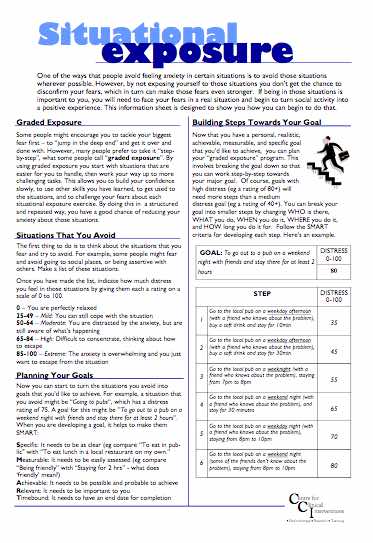Most people who experience phobias find relief from their symptoms when treated with therapy, medication and education – or a combination of these. There are many things that people develop a phobia of, so don’t worry if you have an unusual phobia – the treatment and self-help methods will work for you as well.
Education
Education can be a helpful first step towards recovering from or managing a phobia better. You can start by looking at the websites and other resources suggested below. They can help you to:
- understand how phobias develop
- find ways of describing what happens to you, including problems that you may have kept completely to yourself up to now
- teach you about some of the ways of dealing with a phobia
- learn about how addressing your anxiety is key to reducing phobias
- realise that you're not alone – lots of people experience phobias and most of them recover from them or at least learn to manage them much better.
Counselling or therapy
There are trained professionals who know about phobias and how to help someone who is affected by them. They can provide you with support and help for working through any distressing thoughts and feelings you have and support you to make positive changes in your life.
For some people, it might be helpful to understand why their phobia developed and treatment may involve processing earlier trauma. For others, this isn't important or useful and instead they want to focus on changing their perceptions and behaviour.
Cognitive behavioural therapy (CBT) is a psychological therapy that largely focuses on overcoming unhelpful beliefs. It can be helpful for people with specific phobias. Therapy will involve desensitisation, that is, you gradually having more exposure to the object or situation you feel anxious about. Don’t worry – this only happens when you're ready and at a pace that's right for you. It’s a very effective step in overcoming a phobia. Read more about situational exposure(external link).
Eye-Movement Desensitisation and Reprocessing Therapy (EMDR), unlike purely talking therapies, is a neurological intervention that will help your brain and body separate negative associations with the object of the phobia and replace them with more helpful ones. EMDR therapy involves bilateral stimulation (can be eye-movements, tapping, or listening to sound) administered to you by an EMDR trained therapist. Read more about EMDR(external link).
Medicines
Medication isn't usually recommended for treating phobias, because talking therapies are usually effective and don't have any side effects. However, medicine is sometimes prescribed on a short-term basis to treat the effects of phobias, eg, anxiety.
Examples of medicines that can be used to treat anxiety include:
- Antidepressants: Selective serotonin reuptake inhibitors (SSRIs) are most often prescribed to treat anxiety, social phobia or panic disorder. They are most effective when used alongside counselling or therapy.
- Benzodiazepines: these may be used on a short-term basis to treat severe anxiety until the most effective therapy for you have been found. You can become dependent on benzodiazepines so they’re generally used at the lowest possible dose for the shortest time.
Complementary therapies
The term complementary therapy is generally used to indicate therapies and treatments that differ from conventional Western medicine and that may be used to complement and support it. In general, mindfulness, hypnotherapy, yoga, exercise, relaxation, massage, mirimiri (traditional Māori massage) and aromatherapy have all been shown to have some effect in easing mental distress.








